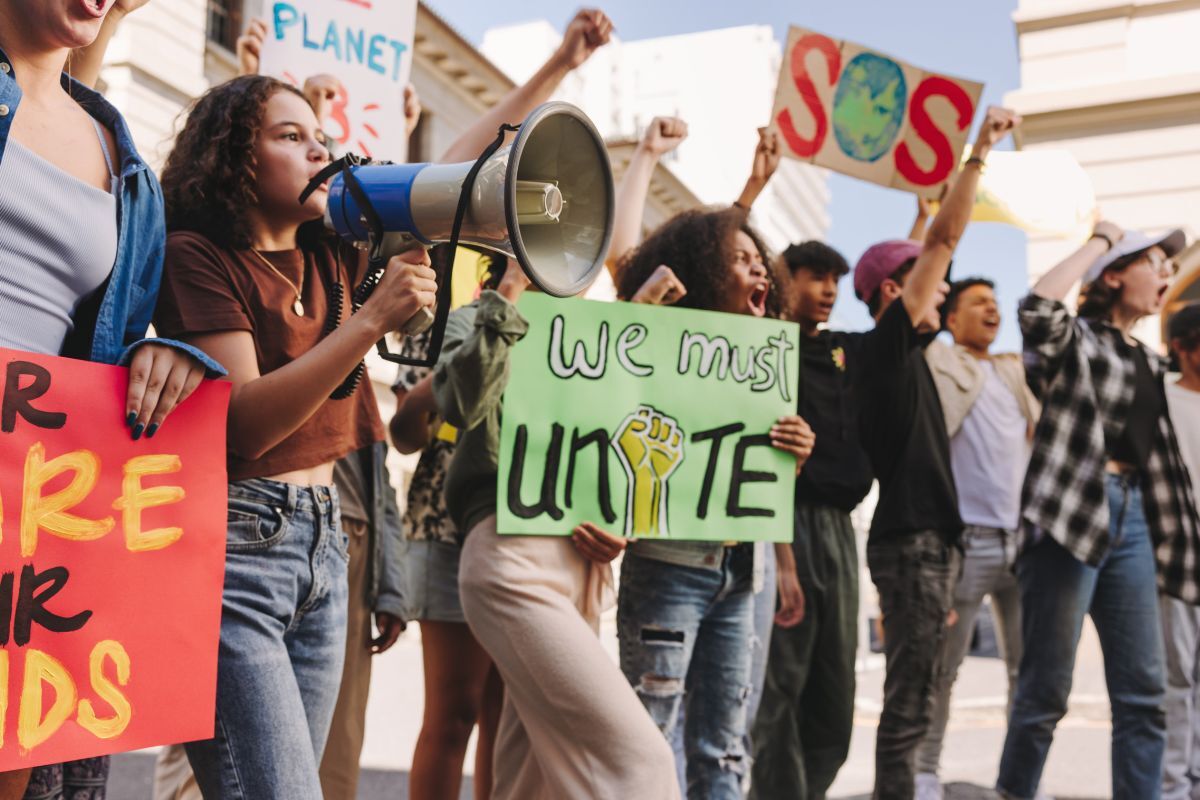A Generation of Sustainability: How Gen Z Is Forcing Businesses to Go Green
The world has become more environmentally conscious, especially after COVID-19, and the UK is not far behind. 36 per cent of consumers only support environmentally friendly companies.
But where does Gen Z fit into this?
Generation Z, born between 1995 and 2012, are the first generation to grow up with the internet and social media while also being the most racially and ethnically diverse generation in history. Now that they are coming of age, Gen Z, known for being highly vocal and passionate about the issues, are using their purchasing power to support businesses that share their values.
Reconomy – a leading supplier of sustainable waste management solutions, offers insight into the potential impact of the upcoming generation’s environmental consciousness on businesses.
What does Gen Z think?
According to Forbes, 62% of Generation Z prefer to purchase from sustainable brands and are willing to pay more for ethically produced goods. Meanwhile, a survey by Bupa reveals that 63 per cent of Gen Z and millennial respondents reported feeling the burden of climate change, compared to only 37 per cent of Gen X and 28 per cent of baby boomers.
These are powerful statistics showing that sustainability is a priority for this generation.
Thanks to the powerhouse voices of Greta Thunberg, Vanessa Nakate, and Mya-Rose Craig, Gen Z has gradually become the most sustainable generation yet. Robust media coverage, which saw an uptick post the Paris agreement, has also helped raise awareness of the damage caused by our behaviour and galvanised Gen Z into action.
www.youtube.com/watch?v=57nTvywae6k
There are several reasons why sustainability is essential to Gen Z. They are the generation most affected by climate change. They also hold high awareness of the problems caused by pollution and waste. In addition, their actions are often motivated by a desire to make the world a better place.
Gen Z values have gone on to influence older generations’ behaviours. According to a survey conducted by Deloitte, 39 per cent of adults reduced the number of new goods they bought between 2020-2021 due to Gen Z and millennials.
The impact on businesses
Gen Z continues to influence change in the business world through their spending habits and advocacy. Businesses are increasingly under pressure to become more sustainable to appeal to this crucial demographic regarding their national and global carbon footprints.
- Gen Z’s preference for social media and digital channels has spurred businesses to adopt more communication practices that promote their efforts. For instance, many brands communicate their commitment to sustainability through online content and social media campaigns. This shift is not only helping businesses connect with Gen Z consumers but is also raising awareness about the importance of sustainability among a wider audience.
- Brands are now more conscious of their environmental impact and are trying to reduce their carbon footprint. This is often done by investing in renewable energy sources, such as solar and wind power, or by introducing more efficient production methods. As a result of this increased awareness, many businesses are becoming more transparent about their environmental practices, providing consumers with information about where their products come from and how they were produced.
- Many businesses have adopted environmentally friendly practices due to pressure from Gen Z consumers. For example, some companies have switched to using recycled or recyclable materials, introduced energy-saving initiatives, or used alternative energy sources.
Businesses are taking note of Gen Z’s advocacy and making changes to their practices, but those which fail to adapt are likely to face extinction.
How Can Businesses Respond
There are many ways businesses can be cognizant of Gen Z’s environmental concerns; - a cohort that would comprise most of their customer base in the near future.
Here are a few examples:
- Reducing the amount of waste produced in the first place through careful planning and design
- Reusing or repurposing materials whenever possible instead of sending them to landfill -Recycling as much waste as possible
- Working with suppliers with sustainable and environmentally friendly practices.
- Businesses can adopt several sustainable waste management solutions, depending on the type of waste they produce. For example, companies that generate large amounts of food waste could consider composting or anaerobic digestion. At the same time, those with a lot of paper and cardboard could invest in recycling facilities.
Ultimately, the best way for businesses to tackle climate change is to prevent waste from being generated in the first place through initiatives such as reducing packaging, encouraging employees to reuse or recycle materials wherever possible, and promoting responsible consumption habits among customers and suppliers.
There’s no doubt that sustainability is taking centre stage when it comes to economic and political conversations. Gen Z continues to campaign for climate change-related causes actively. Consequently, businesses are under the radar and actively held accountable for their actions, raising hopes for a future that doesn’t see the average temperatures rising to more than 2°C.
